Elections
Politics
AP, ASSOCIATED PRESS, BIDEN, BRAZIL, CARACAS, CHA, COLOMBIA, CUBA, DEMOCRACY, ELECTIONS, GUSTAVA, GUYANA, ID, INTERIOR AND DEFENCE, MAD, MADURO, NORTH AMERICA, OACPS, OPPOSITION, ORGANISATION OF AFRICAN, CARIBBEAN & PACIFIC STATES, POLITICS, PRO, SOUTH AMERICA, TRADE RELATIONS, TRINIDAD AND TOBAGO, UNITARY PLATFORM, VENEZUELA
Omar El-Sharif
Venezuela’s Maduro Inaugurated Amidst Protests and Regional Tensions
Nicolás Maduro’s inauguration for a third term on January 10, 2025, has led to heightened domestic protests and international condemnation. Despite claiming electoral victory, he faces significant opposition and a U.S. bounty for his arrest. Maduro’s provocative actions regarding the Essequibo region of Guyana risk escalating tensions in the area, challenging diplomatic efforts and raising concerns about territorial annexation.
On January 10, 2025, Nicolás Maduro was inaugurated for a third term as President of Venezuela, amidst a backdrop of protests and demonstrations against his government. While his supporters celebrated the event, international observers referred to it as a sign of escalating repression within Venezuela, particularly following the controversial elections held on July 28, 2024, which were marred by claims of fraud.
The Unitary Platform alliance, led by Maria Corina Machado until her disqualification, faced a significant setback when their chosen candidate, Edmundo Gonzalez, was declared the true victor by a large margin. However, Maduro falsely claimed he had won, prompting significant protests demanding transparency in the electoral results. This led to increased isolation, as key Latin American leaders, including the presidents of Brazil and Colombia, refused to recognize Maduro’s mandate.
Amidst this turmoil, tensions have escalated between Maduro and the United States, particularly with President Biden recognizing Gonzalez as the legitimate president. The Biden administration has issued a bounty of $25 million for Maduro’s arrest concerning charges of narco-terrorism, further complicating international relations. Additionally, speculation about former President Trump’s potential policies poses further uncertainties for Maduro’s regime, especially concerning oil trade relations.
Maduro’s government has utilized nationalist rhetoric by rekindling Venezuela’s claim to the mineral-rich region of Essequibo, which is part of Guyana. He has initiated controversial elections for a governor in this disputed territory and begun enlisting Guyanese residents there for Venezuelan identification. This move, alongside military advancements such as constructing a bridge connecting Venezuela to Essequibo, has raised alarms over potential territorial annexation.
These actions directly violate a December 2023 agreement meant to reduce tensions and abide by the International Court of Justice’s directives against escalating disputes. The current situation indicates a profound disregard for diplomatic resolution, posing a significant threat to the stability of the region. Urgent collective action is therefore necessary to raise public awareness about these issues and support the indigenous communities affected by the geopolitical strife.
This article discusses the political situation in Venezuela following Nicolás Maduro’s inauguration for a third term. It highlights increased socio-political unrest sparked by alleged electoral fraud, the regional implications of his presidency, especially concerning Guyana, and the international response to his administration’s actions. The piece outlines the internal and external pressures faced by Maduro’s regime and the significance of the disputed Essequibo region, crucial for both countries.
In summary, Nicolás Maduro’s re-election has intensified protests and international isolation, particularly from Latin American leaders and the United States. His administration’s focus on territorial claims against Guyana heightens regional tensions, undermining diplomatic resolutions and potentially leading to conflict. Urgent action is required to promote awareness and support for those impacted by these geopolitical issues.
Original Source: indepthnews.net

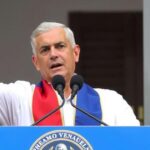
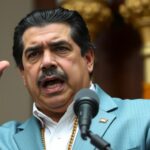
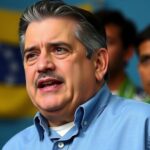
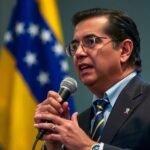
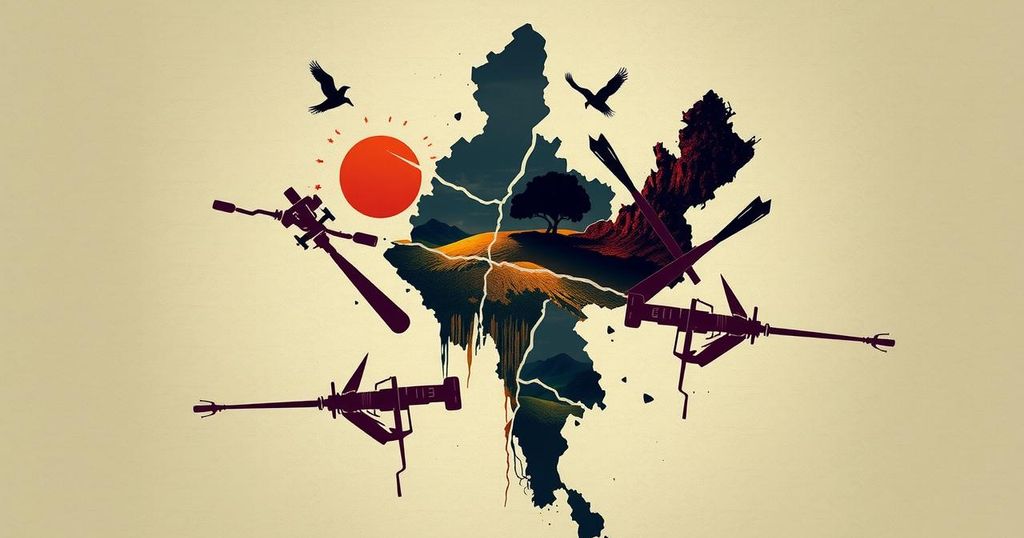


Post Comment